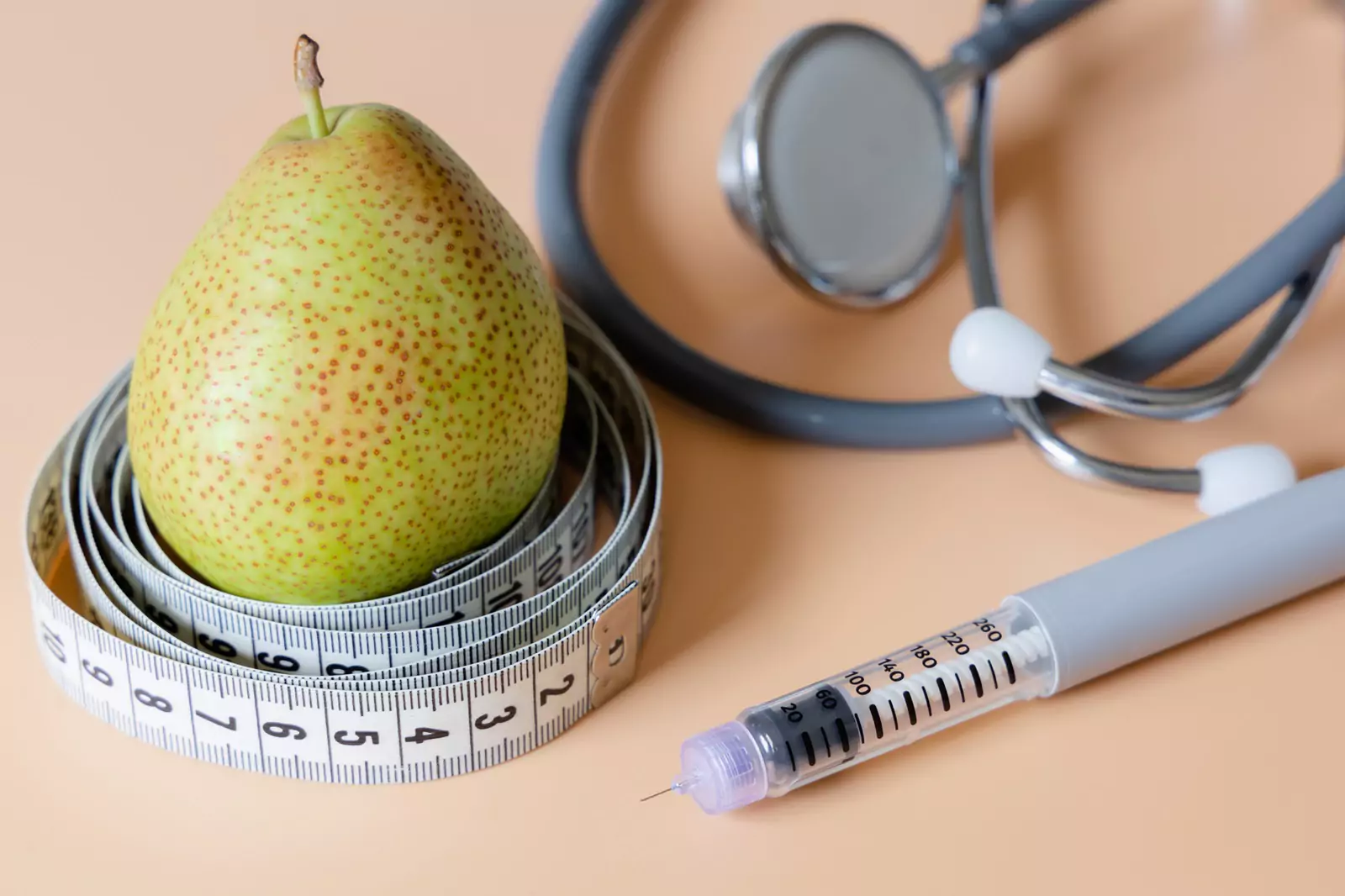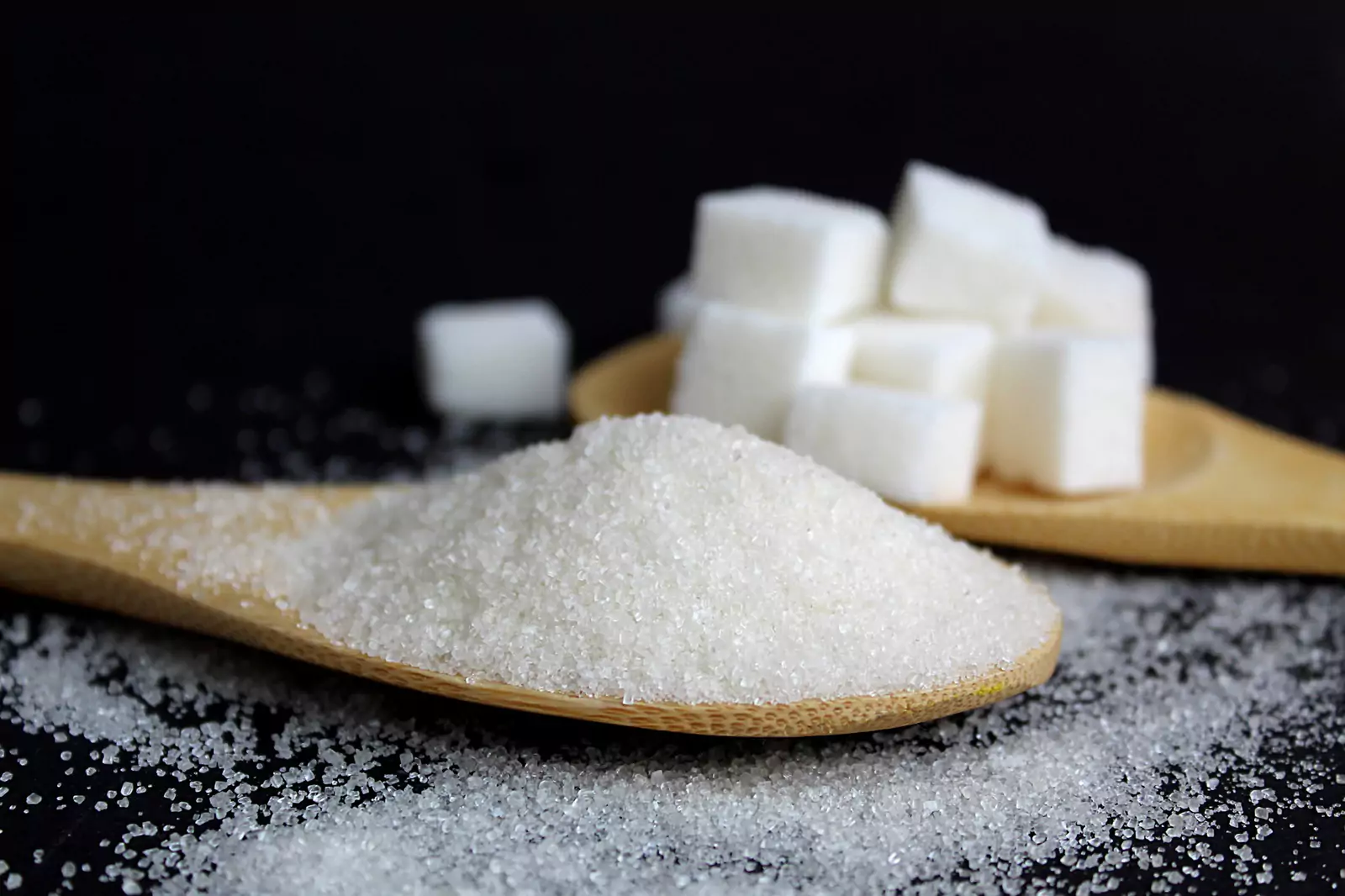
UP TO 40% OFF SITEWIDE






Berberine Tea: Unlocking The Benefits


Table of Contents
- What is Berberine?
- How does it help your body?
- Are there people who should not take Berberine?
- What is Berberine Tea?
- Health Benefits of Berberine Tea
- Promotes Digestive Health
- Regulates Blood Sugar Levels
- SugarMD Super Berberine
- Might Improve Cognitive Function
- How to Make Berberine Tea?
- Potential Side Effects
- How Much Berberine Tea Should You Drink?
- Conclusion
- About The Author
If you’ve heard of berberine tea then you already know that it has potential health benefits. But what else can berberine tea do for your body? And how can you make it?
This guide to berberine tea will answer all of your questions and give you the information you need to unlock the benefits of berberine tea. We’ll discuss what berberine is, how it helps your body, and what kinds of health benefits, besides weight loss, berberine tea can provide.
What is Berberine?
Berberine is a compound found in many different plants, including barberry, tree turmeric, goldthread, and Oregon grape. It has been used for centuries in traditional Chinese medicine as a natural remedy for many different ailments. Berberine has been studied for its potential anti-inflammatory, anti-diabetic, and anti-microbial properties. These possible medicinal benefits have recently led to increased interest in the compound.
Berberine has also made its way into the culinary world as it is often used as a natural food colorant and flavor enhancer. Most notably, berberine tea is becoming a popular beverage due to its potential health benefits. This tea is made by boiling the bark of the berberine-containing plants and drinking the resulting brew.
It has a bitter, earthy taste but can be sweetened with other herbs or honey. Berberine tea has started to gain more attention due to its potential health benefits.
Studies have shown that the compound may help regulate blood sugar levels, reduce inflammation, improve heart health, and more. Berberine is a naturally occurring compound so it can usually be consumed safely and effectively. However, it is always important to consult a doctor before introducing new foods or supplements into your diet.
How does it help your body?
Berberine tea has numerous potential health benefits for the body. This herbal tea is made from a compound called berberine which is a natural alkaloid found in the roots, stems, and bark of certain plants. Berberine has been used in traditional Chinese medicine for centuries and has recently become more popular in the West due to its potential health benefits.
Berberine is thought to have strong anti-inflammatory and antimicrobial properties which may help to protect the body from infections and strengthen the immune system. It’s also believed to help reduce the risk of certain diseases, including type 2 diabetes and cancer. Additionally, berberine has been linked to improved heart health, improved cholesterol levels, and a lowered risk of stroke.
Berberine tea is thought to be particularly beneficial for those suffering from digestive problems as it helps to reduce bloating, cramps, constipation, and diarrhea. Thanks to its anti-inflammatory properties, berberine tea may also be helpful in treating inflammatory skin conditions such as acne or psoriasis.
It’s also been linked to reduced anxiety, improved mood, and better sleep quality. Finally, berberine tea may help regulate blood sugar levels, making it an ideal beverage for those with diabetes.
Additionally, it may help to lower blood pressure, reduce cholesterol levels, and improve liver health. In general, drinking berberine tea may provide the body with numerous health benefits, both short-term and long-term.
Are there people who should not take Berberine?
Berberine has potential medicinal and therapeutic benefits, however, it is not recommended for everyone. The efficacy and safety of berberine have not been tested in people under 18 years of age, pregnant or lactating women, people with impaired liver and kidney function, individuals with hypoglycemia, those taking certain medications (such as anticoagulants and statins), and people allergic to berberine.
Other conditions to consider before taking the supplement include diabetes, hypertension, and thyroid disorders. Those taking berberine for the first time should seek medical advice from a healthcare professional to avoid any adverse drug interactions or health risks. Furthermore, since berberine may decrease blood glucose levels, it is important to take it at least one hour before or after meals and to monitor blood sugar levels while taking it.
Berberine tea, too, should be taken with caution as studies suggest that over-consumption of berberine can lead to skin irritation or allergies. Additionally, berberine tea may interact with certain medications so it is important to consult a doctor before consuming the beverage. Finally, those taking berberine tea should drink plenty of fluids to stay hydrated and limit their caffeine intake to avoid negative side effects such as jitteriness and headaches.
What is Berberine Tea?
Berberine tea is a herbal concoction made of an extract derived from the roots of berberis plants, an evergreen shrub native to East Asia. Although berberine has a long history of traditional use, it has only recently become a popular herbal tea due to its many health benefits. Berberine tea has a yellowish tinge and a slightly bitter flavor.
It is the berberine extract from the roots of the plant that makes it so beneficial as this extract contains alkaloids, polyphenols, flavonoids, and other phytonutrients that have beneficial antioxidant and anti-inflammatory properties. Berberine is also known for its ability to reduce lipids, balance blood sugar levels, and lower cholesterol.
Berberine tea can be taken either as a hot drink or a cold one, although it is generally preferred in its hot form. Adding honey or lemon juice can enhance its flavor, while the addition of ginger or cinnamon can also improve its taste. Berberine tea is often used to treat a variety of ailments such as diabetes, obesity, high cholesterol, and hypertension. It may also improve heart health, reduce inflammation, and protect against oxidative stress.
Studies have also suggested that it may be effective in preventing and treating cancer and other diseases. Overall, berberine tea is an herbal remedy with a variety of therapeutic and health benefits. It is important to note, however, that it is not intended to replace medications or other medical treatments and it is always a good idea to consult a health professional before using berberine tea for any health condition. &
Health Benefits of Berberine Tea
Recent scientific research has revealed a number of potential health benefits associated with berberine tea. The main therapeutic effects of this herbal remedy include improved glucose metabolism, anti-inflammatory benefits, and reduction of various biomarkers of cardiovascular disease.
One of the most promising health benefits of berberine tea is its ability to improve glucose metabolism. Numerous studies have found that this herbal remedy can reduce glucose levels, decrease insulin resistance, and improve the body’s response to glucose. This can help to lower the risk of developing type 2 diabetes.
Berberine tea has also been found to have anti-inflammatory properties. This can be beneficial for those with inflammatory conditions such as rheumatoid arthritis and other autoimmune diseases. Additionally, studies have shown that berberine tea decreases levels of C-reactive protein (CRP) which is an important marker of inflammation.
Promotes Digestive Health
Berberine is believed to help soothe the digestive system and improve overall health. It is known to reduce inflammation in the intestines which can lead to improved digestion. It can also help to combat intestinal parasites and protect the intestinal mucosa. Additionally, berberine is known to help regulate gut bacteria which helps to keep the digestive system balanced.
Research indicates that berberine can help to improve the absorption of nutrients in the intestines, making them more available for the body. This can lead to improved gut health as the body is able to get more out of the food that is consumed. Berberine tea can also help to relieve digestive distress. The alkaloid can help to reduce the symptoms of IBS, bloating, heartburn, and constipation. The tea can also help to prevent and treat ulcers.
When consumed regularly, berberine tea can help to promote overall digestive health. The antidiarrheal, anti-inflammatory, and antimicrobial properties of berberine work together to improve gut health and fight off infectious bacteria. This can lead to reduced digestive symptoms and improved digestive health overall.
Regulates Blood Sugar Levels
Berberine tea has been reported to effectively reduce levels of fasting blood glucose and postprandial glucose levels. In a randomized controlled trial, researchers studied the effects of berberine tea on glucose metabolism in overweight participants. The results showed that berberine tea decreased fasting glucose levels as well as postprandial glucose levels.
In a similar trial, a group of participants with type 2 diabetes were given berberine tea for 12 weeks. The results showed that berberine tea significantly reduced fasting blood glucose levels as well as postprandial glucose levels. In addition, the participants stopped taking oral hypoglycemic drugs for the 12 weeks of the trial.
Additionally, berberine tea has been shown to have a positive effect on glycemic control. In a randomized controlled trial, participants with type 2 diabetes who were supplemented with berberine tea for 12 weeks showed a decrease in their hemoglobin A1c (HbA1c) level. HbA1c is a measure of average blood sugar levels over a three month period.
SugarMD Super Berberine
SugarMD Super Berberine is a superior supplement for those seeking to maintain healthy glucose metabolism and reduce inflammation. Unlike other supplements, it utilizes a potent blend of dihydro berberine and 100% pure Ceylon Cinnamon to ensure that blood sugar remains in a healthy range. Additionally, this formula is safe and effective for long-term use.
Regular use of this product will lead to a significant reduction in inflammation, which is a well-known contributor to a wide range of health issues. If you're looking for a supplement that can help you maintain healthy glucose levels while reducing inflammation, SugarMD Super Berberine is the perfect choice.
Might Improve Cognitive Function
A study in China sought to assess the effects of berberine tea on cognitive impairment in elderly adults. Thirty-four elderly participants with mild to moderate cognitive impairment were given either one cup of berberine tea or a placebo every day for three months. At the end of the study, the participants drinking berberine tea displayed improved performance in tests that measured memory and mental agility compared to those in the placebo group.
The results of the study suggest that berberine tea may be beneficial in treating cognitive impairment in older adults. In addition to this, other studies have indicated that regular consumption of berberine tea may improve working memory, reduce forgetfulness, and increase attention span. The active compounds in berberine tea are thought to be responsible for these effects.
Overall, it appears that berberine tea could provide beneficial effects on cognitive function in elderly individuals. Further research is needed to fully understand the effects of berberine tea on cognitive function and to determine if these effects could also apply to younger individuals.
How to Make Berberine Tea?
To make berberine tea from a pre-made tea bag, first boil a cup of water and add the tea bag to the boiling water. Turn off the heat and let the tea steep for 5-7 minutes. Once the desired strength is reached, remove the tea bag and sweeten the tea, if desired. To make berberine tea from a supplement powder, sprinkle one teaspoon of berberine powder into a cup of hot water.
Stir the mixture until the powder is completely dissolved. Sweeten the tea, if desired. It is best to use a stainless-steel spoon to stir the mixture to prevent the powder from remaining on the spoon. When using a supplement powder, it is best to avoid using boiling water as it can impact the quality of the supplement. Instead, use water between 65 to 85 degrees Celsius.
Hot but not boiling water will help ensure that the berberine tea is not over-extracted which can impact the flavor, aroma, and nutritional value of the tea. After preparing the berberine tea, it is best to consume it as soon as possible for the most benefits. If there is any leftover tea, it can be stored in the refrigerator for up to 48 hours before it begins to lose some of its beneficial properties.
While berberine tea can provide numerous health benefits, it is important to consult with your healthcare provider prior to consuming the tea, particularly if taking any medications or have any pre-existing medical conditions. Berberine tea is a simple and delicious beverage that can be made easily at home and provides numerous health benefits. With a few simple steps, you can make your own berberine tea and enjoy its benefits in no time.
Potential Side Effects
Despite its wide array of potential benefits, berberine tea may also have some side effects. Before drinking berberine tea, it is important to be aware of these potential risks. The most common side effect of drinking berberine tea is mild to moderate stomach upset or nausea.
This is especially common if the tea is brewed with a high concentration of berberine and consumed in large amounts. Drinking berberine tea with food may help to reduce this side effect. Berberine tea can also cause headaches, dizziness, and excessive sweating.
To avoid these effects, be sure to drink berberine tea slowly and in moderation. Other potential side effects include skin irritation, increased heart rate, and low blood sugar. In rare cases, berberine tea can also cause allergic reactions in some people.
If you experience any of the above symptoms, you should discontinue drinking berberine tea and consult a doctor. If you are pregnant or breastfeeding, avoid drinking berberine tea as it may have adverse side effects on your baby.
Also, individuals with a history of gallstones should not drink berberine tea as it may increase their risk of developing gallstones. Lastly, while berberine tea has a variety of potential benefits, it is important to remember that it is no substitute for a balanced diet and regular exercise. As with any health supplement, it is important to consult a healthcare professional before taking berberine tea.
How Much Berberine Tea Should You Drink?
When considering adding berberine tea to your diet, it is important to consider how much you should drink each day. There is no set amount of berberine tea that is considered safe for everyone. Generally, it is recommended to start with one cup per day and gradually increase to a maximum of three cups per day.
You should also ensure that the tea is of high quality and is correctly prepared. Consult with your doctor before drinking berberine tea, especially if you are taking medications or dealing with any health conditions.
Conclusion
In conclusion, berberine tea has many potential benefits, including promoting digestive health, regulating blood sugar levels, improving cognitive function, and strengthening bones.
As with any supplement or herbal remedy, discuss adding berberine tea to your diet with a qualified health professional to make sure it will not interact with other medications or treatments.
While berberine tea may have beneficial effects, it is important to take it in moderation as it can also have certain side effects. Be sure to drink the correct amount to reap the most benefits and to maintain optimal health.
About The Author
Meet Dr. Ahmet Ergin a highly skilled and dedicated endocrinologist with a passion for diabetes care. Dr. Ergin earned his medical degree with honors from Marmara University in Istanbul. He completed internal medicine residency and endocrinology fellowship at Cleveland Clinic.
Dr. Ergin is board-certified in Internal Medicine, Endocrinology, Diabetes, and Metabolism due to his vast medical expertise. He's a certified diabetes educator, author of "The Ultimate Diabetes Book," and founder of "the SugarMD YouTube channel." Dr. Ergin offers exceptional diabetes care to his patients in Port Saint Lucie, FL, helping them manage effectively.
Disclaimer: The website's disease and treatment info is general guidance and not a substitute for professional healthcare advice. Seek professional advice for personalized diagnosis and treatment plans to ensure accurate and effective care. Consult a qualified healthcare professional for any questions about your health and wellness.
Written By Dr. Ahmet Ergin
465 total articles
Meet Dr. Ahmet Ergin, a highly skilled and dedicated endocrinologist with a passion for diabetes care. Dr. Ergin earned his medical degree with honors from Marmara University in Istanbul. He completed internal medicine residency and endocrinology fellowship at Cleveland Clinic. Dr. Ergin is board-certified in Internal Medicine, Endocrinology, Diabetes, and Metabolism due to his vast medical expertise. He's a certified diabetes educator, author of “The Ultimate Diabetes Book,” and founder of “the SugarMD YouTube channel.” Dr. Ergin offers exceptional diabetes care to his patients in Port Saint Lucie, FL, helping them manage effectively. For a closer look into his insights and experiences, connect with Dr. Ahmet Ergin on LinkedIn, Instagram, and YouTube.”
Disclaimer: These statements have not been evaluated by the Food and Drug Administration. Information on this website isn't intended to treat, cure or prevent any disease. Discuss with your doctor and do not self-treat.
Products















